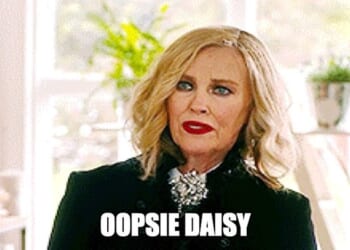David Gauke is a former Justice Secretary and was an independent candidate in South-West Hertfordshire at the 2019 general election.
Here is a piece of unfashionable optimism about the future of the centre-right in British politics.
This might seem a curious time to write this, with two recent opinion polls suggesting that General Election would reduce the Tories to either 46 or ten seats. It is also only a few days after I wrote a piece elsewhere asking if the centre-right was doomed. But bear with me.
Before I start clutching at straws, I want to return to a piece of work by Bright Blue which examined the rather desperate plight of the centre-right in many European countries. The paper sought to define the meaning of “centre-right” and took a similar approach to that taken by Danny Finkelstein in his excellent chapter in The Case for the Centre Right, a book published in 2023, which I edited.
In both cases, the starting point is that the centre-right is, first of all, centrist.
This involves an acceptance that politics is about trade-offs, balancing competing interests, based on evidence, and that there is a need for political institutions to deliver good government. This form of politics can be distinguished from populism (whether from left or right) which fails to recognise complexity, and has a simplistic analysis in which all issues can be boiled down to a contest between “them” (the elite) and “us” (the people).
There is then a distinction that has to be drawn between the centre-right and the centre-left.
The centre-right is more cautious about social change, more sceptical about the good that government can do, more inclined to go with the grain of human nature, more likely to favour market – rather than State – solutions, and more conservative when it comes to fiscal matters. Compared to the centre-left, the centre-right – everything else being equal – will tax, spend and borrow less than the centre-left.
This framework makes it clear that the centre-right is not just a watered down version of the populist right. There is a wholly different approach to politics and policy between these two traditions. When it comes to the distinction between centre-right and centre-left, the approach to politics and policy will share some common ground, but this difference in values and temperament will mean that different conclusions will often be reached.
The challenge for the centre-right, however, is that a significant proportion of its traditional electoral base could be described as being on the populist right. Given the option of voting for an unequivocally populist right party, these voters have deserted the traditional mainstream centre-right parties. If mainstream centre-right parties try to chase after these voters, there is no guarantee of success, but they certainly lose their centrist supporters.
The challenge for the centre-right, therefore, is to articulate a platform that is distinct from both the centre-left and the populist right but is sufficiently broad to win power.
Just at the moment, this appears unlikely.
But here we come to the grounds for optimism for the centre-right. What we have seen in recent days have been very clear examples of the vulnerabilities of both the centre-left and the populist right. These are vulnerabilities that a smart centre-right party ought to be able to exploit.
We should start with the centre-left, and the issue of the week – Labour’s attempt to control the welfare budget.
I will not attempt to get into the details of the merits of the original proposals, the complaints of Labour MPs, and the nature of the climb down. The big picture, however, is straightforward. The cost of health related benefits for those of working age is increasing very rapidly, from £36bn in 2019-20 to £66bn in 2029-30. At a time when growth is stagnant and the public finances are under strain, this is not sustainable.
Addressing this problem is not sufficient to sort out the public finances, but it is necessary.
Then there is the political positioning. Cuts to disability benefits are not popular, nor were cuts to winter fuel payments. But Labour fought the last election on a platform of fiscal responsibility and a willingness to take (admittedly unspecified) tough decisions. After the chaos of the last few Conservative years, Labour would be capable of governing.
We are now a year into office and, notwithstanding a huge majority, Labour appears to be unable to cut welfare spending because its MPs won’t let it. It is contrary to Labour values, they say. The same Labour values, presumably, which results in Labour governments running out of other people’s money. Of course, the blame is being directed at Keir Starmer, Rachel Reeves and Morgan McSweeney but there is a question as to whether the Parliamentary Labour Party is made up of serious people who are serious about fixing the country’s problems, or political campaigners whose purpose in life is approbation on social media.
It is no way to run a country.
A quick look across the Atlantic reveals further problems for the centre-left. The selection of Zohran Mamdani as the Democrat candidate as Mayor of New York, reveals that – just like the populist right can damage the centre-right – the populist left can damage the centre-left. After all, it was not that long ago when Jeremy Corbyn was Labour leader and the party abandoned centrist voters.
What about the populist right? Last week we got two policies from Reform.
The first was the “Britannia card”, an attempt to make the UK more attractive to mobile, wealthy foreigners. It is true that Labour’s reforms to the non-dom regime have resulted in a significant number of people leaving the country, and others not coming here. A U-turn looks to be on the way, which would be welcome. But the Britannia Card is a spectacularly badly designed policy that makes the UK much less attractive to those coming here for four years of less, and is unnecessarily generous for those wanting to stay longer.
Then there is Richard Tice’s proposal that an offender should have an ability to appeal a sentence as unduly harsh if 500 members of the public demand it. I am all for keeping the prison population under control, but this is missing at least two important points. First, when it comes to sentencing – such to the framework of maximum and, occasionally, minimum sentences set by Parliament – the courts, having heard all the evidence, are much better placed to determine a sentence rather than the public. Second, when it comes to appealing an unduly harsh sentence, convicted offenders already have a right of appeal.
The point here is that the populist right does not tend to be very good at producing sensible policies. It is not what they went into politics to do. This weakness is not going to put off many of their supporters very quickly, but it does mean that unless they can kick this habit, they are not easily going to transition from being a party of protest to an effective party of government.
These observations about Labour or Reform are not particularly uplifting.
It would be better for the country if the two most popular political parties could deliver competent government. Labour is evidently struggling; Reform shows no sign of even trying.
Yes, the last Conservative government left the country in a mess, the current state of the Tory Party is grim and the centre-right faces many structural problems and dilemmas. But as the last week has shown, there is surely space for a competent party of the centre-right.
If only there was one on offer.




![‘It’s a Recipe for a Hundred Years of National Dominance’: Stephen Miller [WATCH]](https://www.right2024.com/wp-content/uploads/2025/05/Stephen-Miller-Completely-Obliterates-CNN-Host-Over-Her-Illegal-Immigration-350x250.jpg)

![Trump Posts Hilarious Pope Meme, Leftists Immediately Melt Down [WATCH]](https://www.right2024.com/wp-content/uploads/2025/05/Trump-Posts-Hilarious-Pope-Meme-Leftists-Immediately-Melt-Down-WATCH-350x250.jpg)



![Mother Breaks Silence After Three Daughters Killed During Father’s Custody Visit, Memorial Held [WATCH]](https://www.right2024.com/wp-content/uploads/2025/06/Mother-Breaks-Silence-After-Three-Daughters-Killed-During-Fathers-Custody-350x250.jpg)





